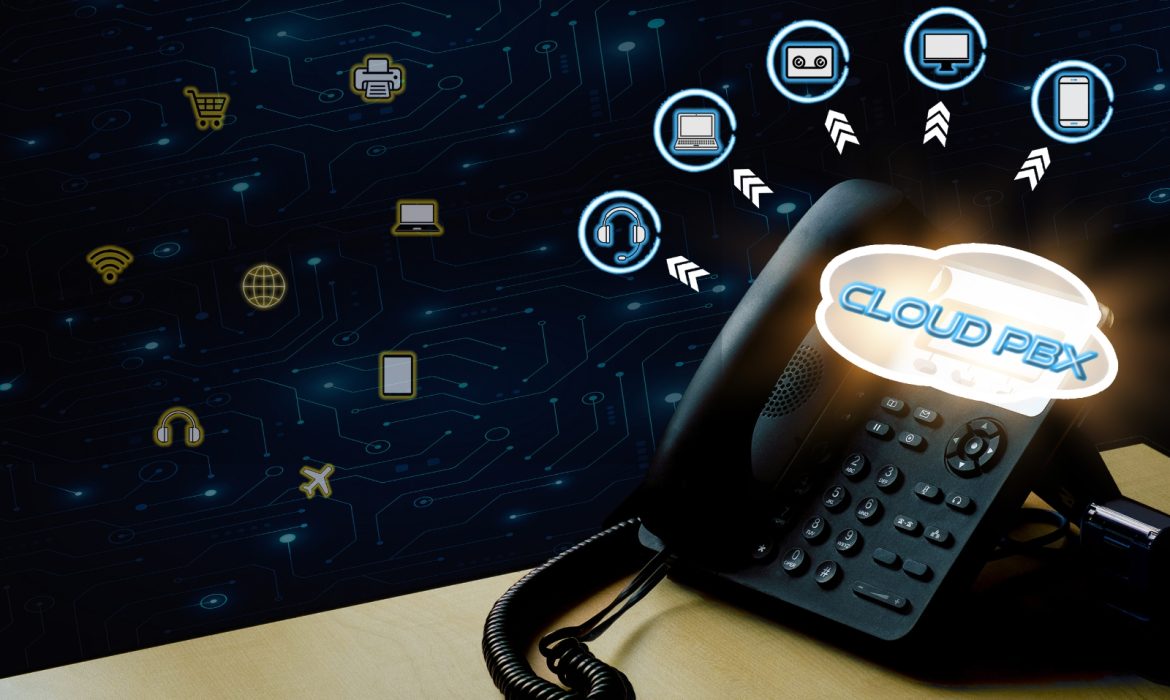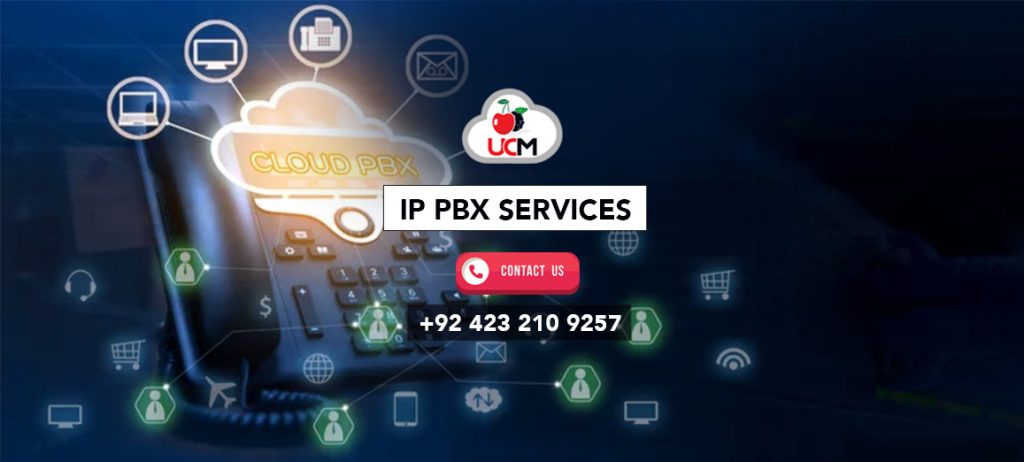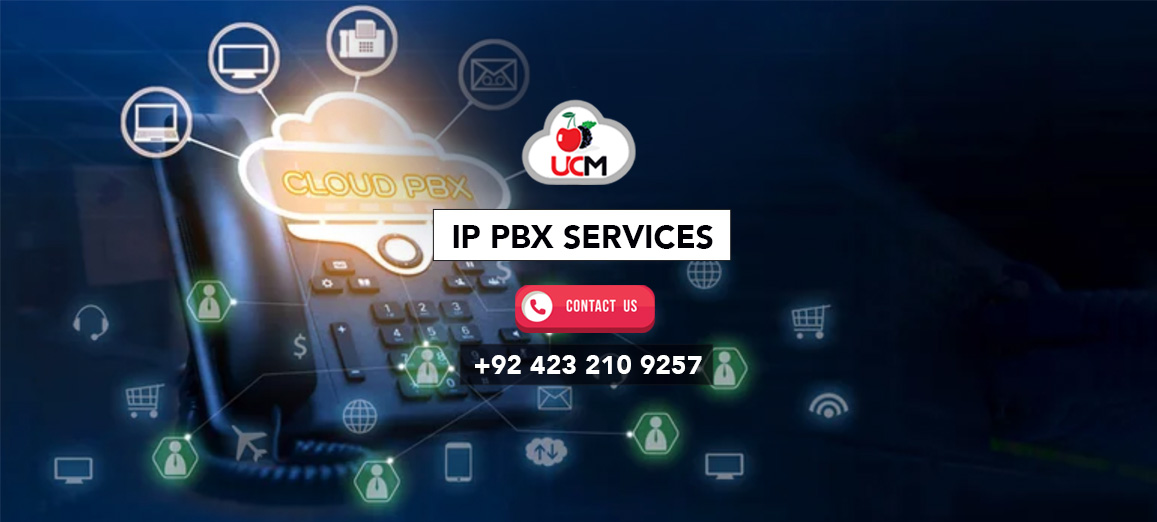Transforming Business Connectivity with Cloud PBX Phone System
Why Invest in a Cloud or VoIP PBX Phone System?
As a business moves from a growing to an established company, its internal and external communication needs also increase. Now, companies are shifting to communication solutions that offer phone calls, video conferencing, and instant messaging to streamline communication with clients and customers. Landline phone systems have become a thing of the past and have been replaced by a robust cloud-based IP PBX Phone System offering enhanced flexibility and scalability. You don’t need hardware, phone lines, or costly servers. These advanced systems work on the internet, while maintenance and updates are the headache of your service provider.
IP PBX Phone System: Basics & Types Explained
- Traditional PBX: Till a few years ago, most businesses depended on conventional PBX setups to achieve their communication goals. They were like mini-physical telephone systems that ran on a local server kept in the office. Office teams were linked with each other through a physical handset. They use this handset to receive and place calls on the office’s internal network. Moreover, companies had to pay expensive upfront cost to buy new equipment and hardware. They reserved a particular room to keep all the equipment. It was a very analogue setup that has undergone a revolution after the arrival of IP telephony. Now it is not a popular choice for businesses anymore.
- IP PBX System: Today, the internet revolution has enabled businesses to ensure next-level communication by linking office-networked phones to public switched telephone networks. IP is a short form of Internet Protocol, while IP-based PBX systems offer businesses better flexibility by allowing communication over an internet connection. Your employees can dial in remotely; additional features like video conferencing and instant messaging make collaboration easier. Although this setup is more flexible than a traditional telephone system, it still requires significant up-front costs and an expert team to manage IP phones.
- Virtual/Cloud PBX System: They can be a part of a hosted system that provides automated call routing and answering services. Cloud or virtual PBX systems use the power of an internet connection to make and receive calls. They also sometimes refer to VoIP solutions that still use hardware but are usually maintained and kept off-site, and sometimes refer to hosted PBX systems. Companies can benefit from this better and more versatile option that is more flexible and less expensive to make and receive calls whenever and wherever they want.
Are Hosted Systems Different from IP PBX Systems?
They are similar to IP PBX systems, but they reduce your workload and improve business communication. Conferencing and call-forwarding features allow more streamlined communication within and beyond your organisation. They are complete phone solutions wherein equipment is hosted off-site, and you make and receive calls on the internet through IP technology. Though sometimes the misleading term cloud-based is also used for hosted systems, they are not truly cloud-based. Still, you need less in-office equipment than a traditional PBX system. Whatever the PBX option you seek, always choose the one that empowers you to achieve your business communication goals.
When To Upgrade Your Traditional PBX System?
For businesses using PBX systems and experiencing the following things, it is the right time to phase out their existing Virtual PBX Solution and switch to a cloud communication platform.
- Increasing Costs: Not only does the initial investment in PBX systems make them more expensive, but many other things also matter. For instance, you may need to add more phone lines or new users as your business grows. Likewise, talking to international clients or customers and hiring a global talent pool can be required. The latest IP PBX systems allow you to manage all these things at a lower cost.
- You want to Facilitate Remote Working: Some companies have moved to remote solutions to work with a global talent pool in today’s digital age. Thus, if you use a telephone system that does not allow remote work, you are losing a big opportunity. Upgrading to the latest solutions will allow you to work from anywhere through an internet connection without investing in equipment or hardware.
- Need to Get Real-Time Data or Call Analytics: You should consider upgrading your system when you can’t access real-time business analytics. For instance, the insights into how many calls your business is receiving or how long your customers stay on hold can lead to improvements for a better customer experience. Getting this data from the PBX system is difficult, but you can have all this analytics at your fingertips through a cloud system.
- Integration or Scaling Seems Challenging: Companies already using ticketing or CRM tools may find it difficult to integrate all these apps with PBX. Likewise, every business grows over time, and you can expand globally. You can make or receive calls through an advanced IP PBX system to fulfill your present and future communication needs.
Top Reasons & Features to Choose the Latest VoIP Solutions
1. Efficient Call Management
The most important reason for choosing the latest IP solutions is call management. The system lets you handle incoming and outgoing calls following a pre-programmed schedule. For instance, healthcare sectors can route calls after closing hours to answering services. Moreover, phone operators can allow or restrict international dialling to avoid high costs.
2. Call Transfer & Custom Greetings
You can easily transfer calls between departments, employees, and agents without dropping the call. The VoIP PBX System is effective and useful for your sales and customer service teams. Moreover, companies can record customised greetings and hold music showing your business’s professional images. This way, you can get your clients and customers updated about issues and promotions.
3. Multi-Location Connectivity
Call centres can easily manage their inbound and outbound calls by distributing them to relevant agents and easily scaling up or down. The most interesting benefit of cloud PBX is connecting your different business branches with the same phone system. This ensures your employees can communicate seamlessly across various locations.
4. Unified Communication System
Cloud PBX systems allow countless integrations and offer communication beyond just phone calls. Your teams can collaborate through video conferencing, while email and chat capabilities ensure a seamless user experience.
The Bottom Line
Finally, a Cloud PBX call management system is an efficient solution to meet your present and future business communication needs. VoIP solutions provide the flexibility and scalability required to grow and expand your business. Thus, if you want to upgrade your communication infrastructure, choose a reliable and robust cloud PBX with CherryBerry UCM assistance to get phone calls, conferencing, HD video calls, and SMS messaging all at once.
All you want to know about On-Premise IP PBX Phone System
PBX refers to Private Branch Exchange or On-Premise IP PBX. Within a company or organization, this private phone network is utilized. Any user of the IP PBX Phone System may interact internally or outside, which is a major benefit of this solution. Numerous communication routes, including SIP, analog, and ISDN, are available for usage. In addition, a PBX enables free conversations between users and allows you to have additional phones than a regular phone line (PTSN). This company phone systems solution also includes other features like voicemail, dynamic voice menus, call queues, information or music on hold, call recording, and call transferring.
There are three different types of PBX phone systems: hosted, virtual, and on-premise.
The Benefits of an On-premise PBX Phone Number:
Having an on-premise PBX phone system has several advantages, some of them are discussed below:
Low Price:
Certain feature sets are inexpensive. On the other hand, a lot of hosted VoIP companies would charge extra for some essential phone capabilities. Various other solutions may also incur additional costs, such as: It is also conceivable that a call queue will cost more. When you use a hosted VoIP system, you will probably incur additional costs for contact center features, wallboards, and call recording. On the other hand, premise-based PBX software usually comes with these functions if you’re trying to cut expenses all around.
Reduced Operating Expenses:
Any business doesn’t want to subscribe to an offer that appears excellent just to find out later on that it will come with expensive fees. This is something to think about if managing an on-premise IP PBX Phone System and related trunks would normally be less expensive for your company than maintaining a hosted license for every user over time. When answering this question, trunk concentration utilization, diversity options, and the overall number of users are important factors to take into account.
It’s Yours:
You almost never own the equipment you use with other phone systems. Rather, you will be required to pay a monthly charge in order to use the cloud-hosted equipment. On the other hand, an on-premise PBX is the best option if you would rather own the gear that you use to run your company.
Characteristics of an on-premise PBX:
Moreover, An on-premise PBX phone system offers several fantastic features. Advanced features have the power to transform internal business operations and provide staff members with increased productivity, enhanced customer support, and increased flexibility.
Remote connectivity: By using an internet connection, digital PBX systems enable use from locations other than the workplace. This implies that you can access your voicemails, call history, and user information from anywhere.
Voicemail to email: You have the option to attach your voicemails to emails in the form of audio files.
Call routing: The system may be configured to allow callers to utilize a specified number that will be forwarded to the appropriate individuals and groups. If the intended receiver is unavailable, automatic call routing can reroute the appropriate calls to the appropriate parties.
Conference calls: A call can have many people patched in at once.
Hold options: To lessen the likelihood that someone may hang up, you can play music or send out marketing messages to them while they are on hold.
Call transferring: By pressing a few buttons, you may designate any user on the system to receive and handle incoming and outgoing calls. These days, digital PBX systems frequently come with simple touch-screen phone choices.
Conclusion:
Even though all organizations occasionally have inadequate internet access, the on-premise IP PBX Phone System is a success if you want the concept of 100% reliability. We at CherryBerry UCM are ready to help if the aforementioned features and benefits seem like something you should take advantage of. We can walk you through the many choices, providing a non-technical overview of the advantages and disadvantages of hosted VOIP systems as well as the on-premise PBX system that best suits your needs.
What Could You Change in Workspace with PBX Phone System?
Why Does a Business Need a Cloud PBX Phone System?
Both startups and thriving businesses need to ensure seamless connectivity with customers, business partners, teams, and departments. This unified communication strategy is highly effective in keeping everyone on one page. Companies looking to enhance their internal and external communication can take advantage of PBX Phone System technology for better business connectivity. This system is convenient for companies that have one main number with extensions. Instead of giving each staff member a separate phone line, they can streamline all into one system avoiding paying multiple phone bills. PBX systems vary on the basis of complexity and sizes from simple systems that come with basic features to an advanced cloud-based multi-layered system with extensive functionality. Let’s learn more about how the latest PBX technology is more beneficial for enterprises than traditional systems.
What Does A PBX System Means for Your Business?
The person new in business communication may feel stumbled into the conversation on PBX technology. First of all, it is important to know that PBX, an abbreviation of Private Branch Exchange, refers to a telephonic system that connects various phone lines into a unified system and allows the routing of calls with a business. This technology promotes internal communication among teams and departments in a company. Moreover, your team can also ensure effective communication with business partners and customers using different channels like voice over internet protocol (VoIP) or integrated service digital network technology. The latest PBX systems have also replaced the traditional operators that contain physical wire connected with an extension and used to call in the office. Meanwhile, a PBX server is the brain of the whole system in the traditional system and now cloud technology has taken the place of these operating systems.
Significant Features of PBX Technology
1. Call Transfer
Your agents no longer need to drop the call to transfer it to another extension as the most available one can answer the calls or the system can easily route its available agent.
2. Extension Dialling
You can use the same number for the entire set-up and can assign unique extensions to each worker or department. This facility reduces the need for using multiple numbers within an organisation.
3. Close Hours Availability
You can set your PBX system to route calls to available branches working round-the-clock during closed business hours.
4. Call Queuing
Customers do not like to stay on hold. They would appreciate it if your agents informed them of the expected wait time. Moreover, your agents can prioritise some calls over others.
5. Conferencing
Companies can also arrange conference calls through the latest PBX phone technology instead of traveling abroad to hold face-to-face interactions.
6. Voicemail
The latest internet-connected PBX system allows you to listen to your messages from any mobile device, computer or email.
7. Call Recording
This feature allows you to track conversations between customers and agents. Moreover, it is also possible to track the whereabouts of the callers for personalised interaction.
Final Remarks
Today, PBX systems are available in several varieties so you can choose the one that suits well with your business needs. These include traditional analog PBX phone systems that use old telephone service lines for connectivity and an on-premise system that contains IP phones connected with a PBX server through a LAN network. Cloud-based PBX technology is quite new and allows unified communication on internet-enabled devices. Moreover, it is a good idea to consult with experts like Cherry Berry UCM before upgrading your old system to a new one. Our experts will guide you well on how you can meet your organization’s needs perfectly. Implement an effective phone system in your business to ensure unified communication among your team members to improve better customer service experience and enhance productivity.






